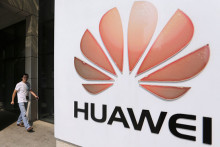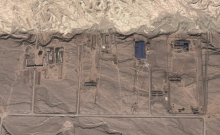WSJ: 'Chinese still hacking us'
Several U.S. media outlets experienced a massive wave of cyberattacks allegedly coming from the Chinese military over the last few months. While some newspapers have claimed that their networks are now safe, the Wall Street Journal may still be a victim of the online onslaught.
The newspaper's owner Rupert Murdock tweeted today, "Chinese still hacking us, or were over weekend."










































































